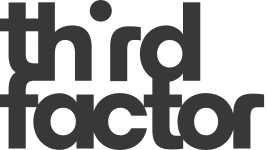John Wooden is often called the greatest coach of all time. He won ten National Championships in twelve years during his tenure as head coach of the UCLA Bruins men’s basketball team. At one point, he won seven championships in a row. The next longest streak is two.
With his college roster substantially turning over every year, Wooden’s secret weapon was adaptability: when he had two 7-footers in Lew Alcindor and Bill Walton, he focused on parking these ‘bigs’ near the basket and feeding them the ball. When he had a shorter roster, he adapted to focus more on shooting from the high post.
Hundreds of very good coaches have not fared as well: their system ‘clicks’ with a star player and they have great success, and then the star moves on and they continue to try to run the same playbook – while their success, career, and reputations diminish. As Wooden succinctly put it: “failure is not fatal, but failure to change can be.”
 John Wooden with Lew Alcindor, Lynn Shackelford, Kenny Heitz, and Lucius Allen; Los Angeles Times, CC BY 4.0, via Wikimedia Commons.
John Wooden with Lew Alcindor, Lynn Shackelford, Kenny Heitz, and Lucius Allen; Los Angeles Times, CC BY 4.0, via Wikimedia Commons.
Wooden was coaching basketball, but he was also dispensing essential career advice. What he understood was that if you want to be future-proof, the steady refinement of one set of skills isn’t enough.
As Kelly Bradley, the CHRO of RBC, Canada’s largest bank, recently shared: “we talk about [acquiring new skills] as building range. Expanding skills and experiences gives individuals more options and the organization more flexibility. In a world where change is constant, range becomes a strategic advantage.”
“In a world where change is constant, range becomes a strategic advantage.”
Now more than ever, a future-proof career hinges on the ability to acquire new skills that allow you to adapt to a new reality. So, can you get better at building range? Well, that’s where meta-skills come into play.
Skills and Meta-Skills in Action: The Pharmacist
Consider someone who has been a pharmacist for the past 20 years.
They came out of University with a Chemistry degree and started working in a job that required two primary skills: chemistry to compound the medication and math to count pills and work the cash register.
As technology advanced, the compounding and dispensing part of the role became more automated, and the role of pharmacists expanded greatly to include services like medicine reviews for Seniors, diabetic counseling, celiac counseling, flu shots, diagnosing and prescribing, and more. Suddenly, being a pharmacist also required customer service (or even sales) skills, and the process savvy to manage an automated dispensing process.
Fast forward, and we can easily imagine the role evolving to require mental health counseling skills, tech savvy to perform diagnostics to deliver personalized medicine, and more.
Figure 1 – A Pharmacist’s Journey: Skills vs. Meta-Skills

These different sets of skills anchor execution at different points in time – but what enables our pharmacist to evolve from one set of skills to another and remain successful over time are meta-skills. These are the capabilities that allow someone to consistently and repeatedly let go of old skills that have anchored their success and acquire and learn new ones.
Getting Better at Building Range: Three Imperatives
The discipline of evolving and building range can be broken down into three imperatives: see clearly, move quickly, and stay the course.
01.
See clearly Build self-awareness and empathy.
02.
Move quickly Strengthen flexibility, creativity, and learning capacity.
03.
Stay the course Cultivate resilience
01. See Clearly
Acquiring new skills starts with developing a great radar: Where am I strong? Where am I falling behind? What do I need to work on developing?
Self-awareness is half of the battle, but an under-appreciated meta-skill is honing the ability to listen to critique with empathy rather than resistance. When someone points out a gap or limitation in your skill-set – instead of pushing back, consider “what are they seeing that I’m not? How could that help me identify a skill I need to build?”
02. Move Quickly
Strengthening learning capacity is at the heart of moving more quickly to build range. The faster you can move up learning curves, the easier it is to acquire new skills.
There are many great resources that can help you get better at learning – but one of my favourites (which also happens to be free) is the Learning How to Learn course taught by the wonderful Dr. Barbara Oakley.
03. Stay the Course
Finally, the journey of evolution is not a straight line. Adults hate being at the bottom of learning curves, and the journey up those curves is fraught with pressure, discomfort and setbacks. It is much more comfortable to refine one skill set over time than it is to build range.
One of the most effective ways to build resilience is to focus on relationships: who else is working towards the same goals as you? Who can you learn alongside? Who will push you, support you, and absolve you of the guilt we all feel from not being enough? Identifying 2-3 people who can be in your ‘training group’ can be a well-spring of resilience.
Meta-Skills: Crystal Ball Optional
Jeff Bezos famously said that he built Amazon around the belief that at no point would people want to pay higher prices or have worse product selection. As he stated at the time: “I very frequently get the question: ‘What’s going to change in the next 10 years?’… I almost never get the question: ‘What’s not going to change in the next 10 years?’ And I submit to you that that second question is the more important of the two.”
Meta-skills are that rare example of something that will not change. There is no crystal ball required to see that the future will be different than the present, success in that future will require new and different skills, and an ability to spot critical skills, rapidly learn, and stay the course through the learning curve will be an advantage.
“Individuals who invest in strengthening their awareness, learning capacity and resilience can become irreplaceable”
Investing in meta-skills will pay a guaranteed return for both organizations and individuals. Organizations that invest in building meta-skills at scale will be rewarded with a talent pool that can adapt to new requirements and deploy new capabilities with greater ease and speed. Individuals who invest in strengthening their awareness, learning capacity and resilience can become irreplaceable.






